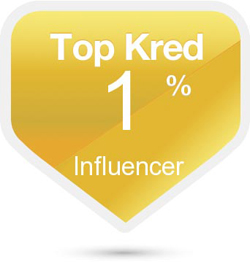DON’T SET FOOT AT THE BEACH OR POOL THIS SUMMER
IF YOU’RE USING THESE SKINCARE PRODUCTS!
By Dr. Manish Shah

Photo courtesy of Dr. Manish Shah. All other photos
You’re all set for a fun day in the sun with your wide-brimmed hat to shield you from the UV rays, and you have given your waterproof SPF 30 or higher plenty of time to absorb into your skin. To play it safe, you have brought more suntan lotion to reapply after swimming or sweating. You are a dermatologist’s dream- or so you think!
Have you given any thought to what you applied to your skin the night before or that morning before your set out for your day? The answer is you probably have not if you have concocted a skincare regimen that works for your skin type.
The problem: What is effective for Winter, Spring, and Fall, can cause significant photo-sensitivity (read burning) and other skin complications when Summer arrives.
Dr. Manish Shah, a Board- Certified Denver, Colorado plastic surgeon steps up to the plate to reveal the following information:
–what types of products/ingredients sun worshippers should avoid,
—what can serve as safe substitutes.
Dr. Shah explains “Certain ingredients in products make people photosensitive. Photosensitivity (or sun sensitivity) is inflammation of the skin induced by the combination of sunlight and certain medications or substances. This causes skin redness and may look similar to a sunburn. Both the photosensitizing medication or chemical and light source have to be present in order for a photosensitive reaction to occur. Consumers should understand that it is not brands of skincare that can make one photosensitive but rather the ingredients in those brands.”
According to Dr. Manish Shah:
If you are planning to be in the sun, do not use the following types of products
Topical Acids:
Alpha and beta hydroxy acids such as glycolic, lactic, and salicylic acids can cause the skin to be more susceptible to sun damage from being regularly exfoliated. These ingredients are commonly used in anti-aging, skin-brightening, and acne-fighting products.
Alternative:
While AHAs and BHAs only cause minimal photosensitivity, you wouldn’t want to risk feeling that stinging sensation on your face. There are alternatives. Azelaic acid, found in wheat, rye, and barley—comes in handy during the day as it is useful in the treatment of acne, rosacea, melasma, and post-inflammatory hyperpigmentation and is not associated with the sun-induced reaction.
Benzoyl peroxide:
This is most typically found in acne products and can cause the skin to be very sensitive.
Alternative:
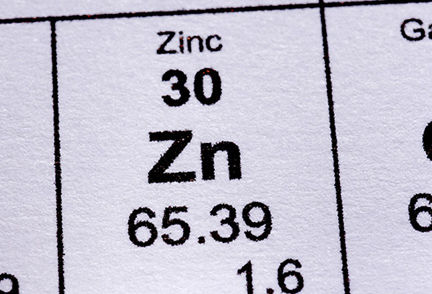
Zinc — the topical kind and the oral supplement.
Zinc enhances the immune system and has anti-inflammatory properties. Another major role of zinc is to regulate cell production and turnover and reduce the amount of natural oil that your skin produces. It prevents pores from clogging and subsequent acne formation. Zinc oxide is present in many physical sunscreens and is less likely to cause sun-sensitivity. “So, wear a good sunscreen with zinc oxide,” says Dr. Shah.
Hydroquinone:
Typically used in skin-lightening products. Although hydroquinone is stable in sunlight, it’s not advisable to use it during the day as the sun’s skin-darkening effects are stronger than hydroquinone’s bleaching effect. Additionally, hydroquinone actually reduces your body’s ability to create enough pigment to protect your from UV rays.
Alternative:
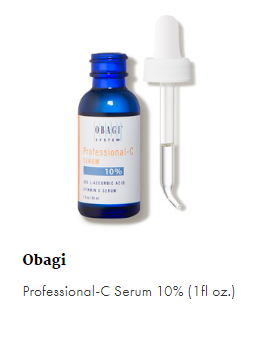
Vitamin C is an excellent alternative to hydroquinone, as it is an antioxidant and combats dark spots while also having anti-inflammatory and anti-aging properties.
Retinol and retinol derivatives:
Retinol and retinol derivatives encourage cell turnover, which exposes delicate, new skin. These newer layers of skin can be more sensitive to the sun. With enough sunscreen protection, newer formulations of retinol can be safely used during the day, but experts still advise limiting its use to nighttime especially for those who have sensitive skin.
Alternative:
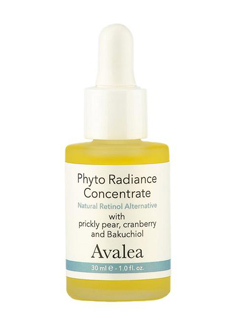
Bakuchiol is the new, clinically proven “natural retinol,” a powerful plant-based retinol alternative that decreases skin sensitivity to the sun. It is derived from the leaves and seeds of the babchi plant and helps to heal, calm and soothe the skin, via its anti-inflammatory and antibacterial properties.
Essential oils:
Essential oils including bergamot, bitter orange, grapefruit, lemon, lime, and mandarin leaf can also cause sun sensitivity.
Alternative:
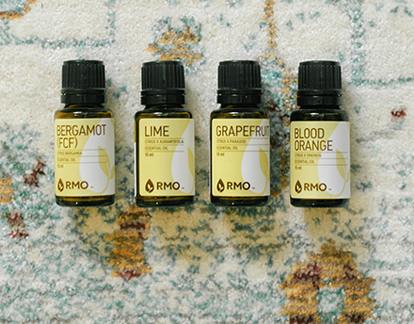
It is best to choose FCF or “furocoumarin free” essential oils when in the sun, as these are not known to be “photosensitive” or cause reactions to sunlight. Furocoumarins are photo-toxins which are produced by plants as a mechanism to ward off small animals or bugs. Common ones include Oxypeucedanin and Bergapten. Examples of FCF essential oils are Bergamot FCF (Citrus bergamia), Blood Orange, Tangerine, and Red Mandarin.
Topical and oral prescriptions
Topical and oral prescriptionsincluding antibiotics, antifungals, antihistamines, and anti-inflammatories can also cause sensitivity, so it’s vital to thoroughly read labels, instructions, and warnings as well.
About Dr. Manish Shah

Manish Shah, M.D., F.A.C.S. was born in Canada and raised in the Washington, D.C. area. He graduated with honors from the University of Pennsylvania, receiving a degree in biomedical engineering. He then completed his medical training at the University of Virginia, earning his Medical Doctorate.
During this time, he also completed a one-year fellowship in microsurgery research at the New York University School of Medicine / Institute of Reconstructive Plastic Surgery. As a prelude to his plastic surgery training, Dr. Shah completed a rigorous five-year training program in General and Trauma Surgery at Emory University and the Medical College of Georgia. His formal training in Plastic and Reconstructive Surgery was completed at the Univ. of Tennessee College of Medicine – Chattanooga Unit. After completing his plastic surgery training, he moved to New York City when he was selected for the prestigious Aesthetic Surgery Fellowship at Manhattan Eye, Ear, and Throat Hospital. He underwent extensive, advanced training in aesthetic surgery of the face, breasts, and body at the hands of some of the most renowned cosmetic surgeons in the world. This fellowship is widely considered to be the best of its kind in the world. Dr. Shah is one of only a select few plastic surgeons in the country who have undergone formal post-graduate training in aesthetic surgery.
Dr. Shah is a Clinical Assistant Professor of Surgery at the University of Colorado Health Sciences Center. He maintains a private practice in Aesthetic Plastic Surgery in the Cherry Creek neighborhood of Denver.
Dr. Shah is a member of the American Society of Plastic Surgeons, the American Society of Aesthetic Plastic Surgery, the International Society of Aesthetic Plastic Surgery, the Rhinoplasty Society, and the European Academy of Facial Plastic Surgery.
Dr. Shah’s specialties include revision facial aesthetic surgery, rhinoplasty (“nose reshaping”), and aesthetic surgery of the breast (breast augmentation, breast lift, breast reduction). He is, however, well-trained in all areas of aesthetic surgery.
Dr. Shah’s aim is to obtain a natural appearing transformation that complements the real you!
Dr. Shah is board-certified by the American Board of Plastic Surgery.
LA-Story.com thanks Dr. Manish Shah for such insightful and important advice on skin care this summer! His alerts about certain products can save you from some harsh and painful reactions to the products you have applied to your skin!
Stevie Wilson,
LA-Story.com
________________________DEALS and STEALS(Affiliate Links)
I curate deals that offer bonuses, bargains, and great products –and some are very specifically for this site to feature to my audience because I want my audience to get amazing products from great brands!
Disclosure: some of the links on this post might have affiliate links! It costs you nothing. If you buy something, the brand pays me a small percentage.
If you purchase via my link, I make a very small percentage for that purchase. It does not add any additional cost to the product. The price you see is the retail price (depending on store or vendor) .
Sunscreens Are Essential in Summer: Try COOLA Full Spectrum 360 Sun Silk Drops SPF 30

>
COOLA’s breakthrough Sun Silk Drops— your daily Full Spectrum 360° protection from the sun, environmental toxins, and digital overexposure.
Their advanced organic formula is light-as-air yet protects against broad-spectrum UVA/UVB, IR (infrared), and HEV (high energy visible) Light, meaning they’ve got you covered from beach to board meeting. A fast-absorbing complex blend of plant stem cells and patented LightWaves Defense [JS+M] technology helps to prevent visible signs of aging from both indoor and outdoor daily aggressors. Finally, full spectrum organic skincare that keeps up with your everyday modern lifestyle!
What else you need to know:
This product is formulated without oxybenzone. It is vegan, non-GMO, TSA-friendly, and cruelty-free.
Available at Sephora.com and Coola.com
Sannibel Platform Wedge Sandal
TREASURE & BOND
Price$79.95
From Nordstrom and Nordstrom.com

Stevie Tip:
I have this same sandal from their first shipment that included yellow suede. I am a huge fan of bright colors and I wear this sandal at every opportunity!
Subscribe to RSS headline updates from: http://feeds.feedburner.com/la-story/Bpyd
Powered by FeedBurner
If you are going to feature content from LA-Story.com including images, podcasts or videos including the accompanying text, please respect copyright provisions. We require a notation of content origination (mea




